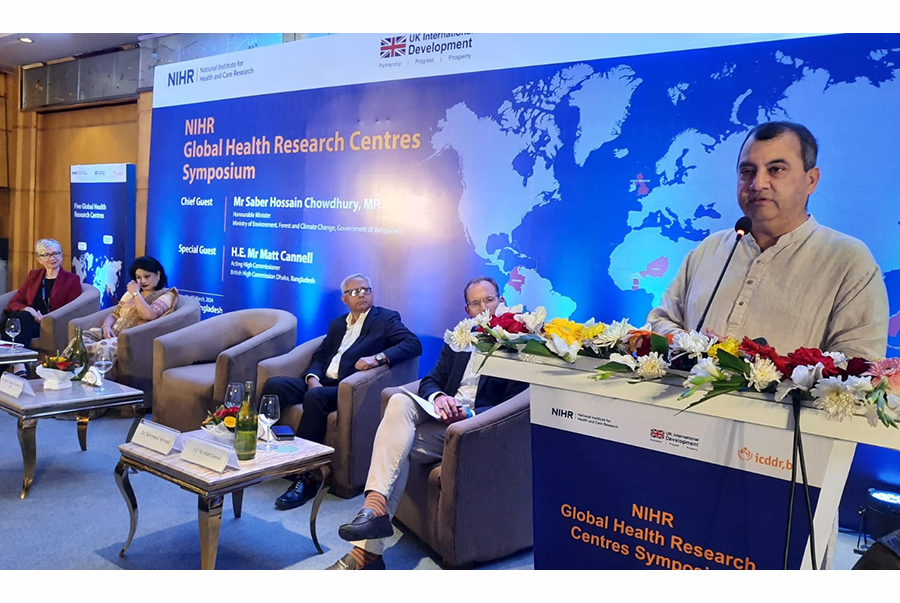Health dimension to be incorporated into NAP to address noncommunicable diseases: Minister

Published :
Updated :

Environment, Forest and Climate Change Minister Saber Hossain Chowdhury on Monday said the health dimension would be incorporated into the National Adaptation Plan (NAP) to address the climate-induced non-communicable diseases in the country.
For this to happen, a nexus between health and climate change is needed, he added.
The environment minister said this in his speech as the chief guest at NIHR Global Health Research Centres Symposium organised by icddr,b on Non-Communicable Diseases and Environmental Change held at the Westin, Dhaka on Monday.
Emphasising changing the mindset of the people regarding public health, the minister said that “How Bangladesh looks in the next 50 years will depend on how we address the public health issues. So, public health will become the centre of the growth of Bangladesh.”
It’s almost in perfect condition -- rainfall, humidity, and temperature are at the right levels for the dengue virus to spread in the country, he said, adding that climate change is responsible for the dengue outbreak.
Therefore, we need to work on the nexus between climate change, health and science-guided policies for the right action, the minister added.
The environment-related non-communicable diseases (NCDs) include dengue, chikungunya, malaria, miscarriages, and premature childbirth, respiratory diseases, cardiovascular diseases, neurological disorders, kidney diseases, etc.
The environment minister said projects ensuring safe drinking water in saline-prone coastal zones and a comprehensive delta plan for sustainable growth are underway.
Hosted by icddr,b and supported by the National Institute for Health and Care Research, UK (NIHR) this premier event has convened 60 leading experts, thought leaders, and professionals from five global health centres in West Africa, Latin America, South Asia and Southeast Asia.
Dr Aliya Naheed, Scientist, icddr,b and Country Director, NIHR Global Research Centre for Non Communicable Diseases and Environmental Change, Bangladesh said, “The ultimate goal of the Bangladesh centre is to build high quality research team in Bangladesh who will continue finding solutions to save more lives in the future.”
Dr Tahmeed Ahmed, Executive Director at icddr,b, said that we stand at a pivotal moment in global health, where collaboration and innovation intersect to address the most pressing health challenges of our time.
Matt Cannell, Acting High Commissioner, British High Commission in Bangladesh, underscored the need for collaborative research among the countries in development work to address the challenge of climate change.
Prof Kara Hanson, NIHR Programme Director for Global Health Research, also spoke at the event.
nsrafsanju@gmail.com


 For all latest news, follow The Financial Express Google News channel.
For all latest news, follow The Financial Express Google News channel.